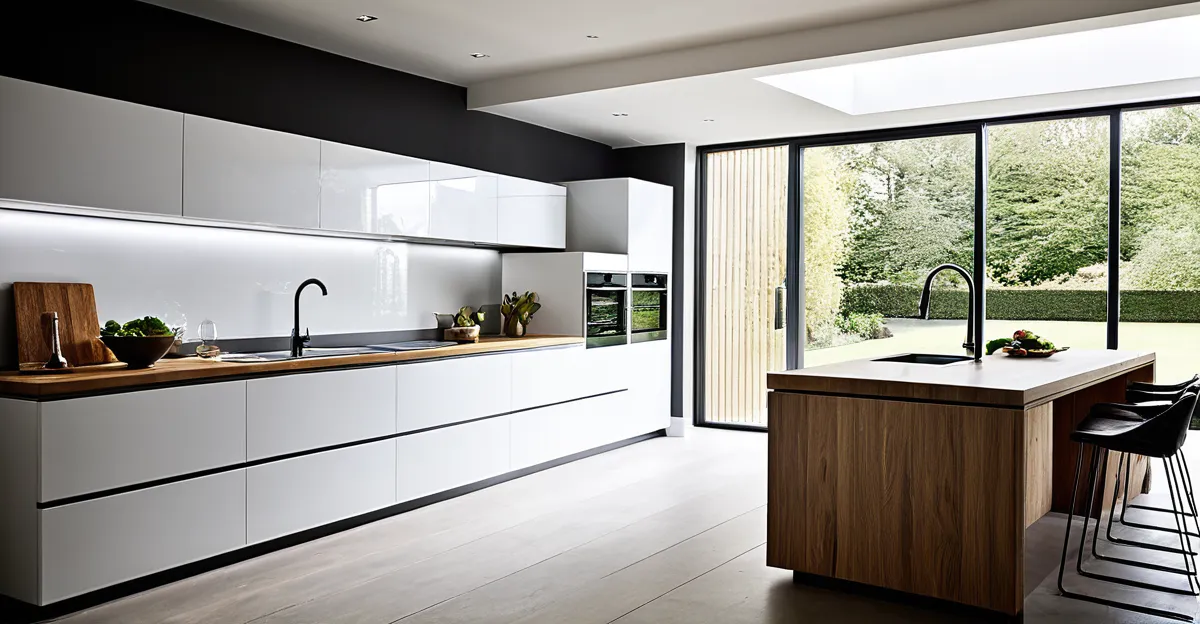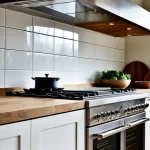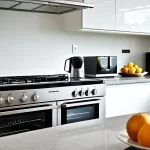Impact of Emerging Design Styles on UK Kitchens
Emerging kitchen design trends UK reveal a strong shift towards minimalism, emphasizing clean lines and clutter-free spaces. This approach not only fosters a calm atmosphere but maximizes functionality in often compact UK kitchens. Alongside minimalism, open-plan layouts are increasingly popular, creating fluid connections between cooking, dining, and living areas. These designs support contemporary lifestyles, encouraging social interaction and adaptability.
The rise of multifunctional spaces reflects growing demands for kitchens that serve beyond food preparation — doubling as workstations or family hubs. This trend highlights flexibility, blending form and function seamlessly. Global aesthetics influence UK kitchens, with Scandinavian simplicity merging with local preferences for warmth and practicality. The melding of these elements produces unique, tailored kitchen environments that resonate both visually and functionally.
Have you seen this : How Does British Culinary Tradition Influence Modern UK Kitchen Design?
Experts anticipate that future kitchen aesthetics will continue embracing versatility and simplicity, with an ongoing focus on utility and style. Contemporary kitchen styles evolve as a response to changing lifestyles, emphasizing more than just design, but enhancing everyday experiences in the heart of UK homes.
Advances in Materials and Sustainable Practices
Sustainable kitchen design is a pivotal trend shaping modern UK kitchens. Homeowners increasingly demand eco-friendly kitchen materials that minimize environmental impact without sacrificing style or durability. Popular choices include recycled glass worktops, bamboo cabinetry, and reclaimed wood flooring—all aligning with green kitchen solutions. These materials reduce waste and often require less energy for production, supporting a lower carbon footprint.
Also read : How is the UK adapting to the latest kitchen trends?
Sustainable cabinetry options now extend beyond aesthetics to include formaldehyde-free finishes and sustainably sourced timber. Worktops made from recycled composites or responsibly quarried stone combine long-term durability with environmental responsibility. Flooring crafted from natural, renewable resources like cork or bamboo offers resilience and comfort underfoot.
Integrating these eco-conscious solutions into kitchen renovations involves careful planning and supplier selection. Homeowners should consult with designers knowledgeable about sustainable kitchen design to select materials that meet their eco-goals while complementing contemporary kitchen styles. The trend toward sustainable kitchen design is growing, promising that future UK kitchens will blend refinement with environmental stewardship, demonstrating that stylish kitchens and sustainability can coexist seamlessly.
Integration of Smart Technology and Appliances
Smart kitchen technology is revolutionizing contemporary kitchen styles in the UK, melding convenience with efficiency. Connected appliances, such as intelligent ovens, refrigerators, and voice-activated lighting systems, are increasingly common in homes, embodying the forefront of kitchen innovation. These devices enable users to monitor cooking remotely, receive maintenance alerts, and optimize energy use through automation.
How does smart kitchen technology enhance functionality? By integrating sensors and IoT (Internet of Things) connectivity, these appliances streamline everyday tasks, reduce waste, and provide personalized cooking assistance. For instance, a smart fridge can track food inventory and suggest recipes based on contents, while automated coffee machines customize brews via smartphone controls.
Looking ahead, future kitchen aesthetics will likely incorporate even more seamless integration of technology, emphasizing user-friendly interfaces and smart layouts. Preparing kitchens for these advancements involves designing spaces with adequate power sources, connectivity infrastructure, and adaptable cabinetry to accommodate evolving tech. This approach ensures kitchens remain state-of-the-art and responsive to lifestyle changes, reinforcing their role as dynamic living hubs.
Lifestyle and Sociocultural Influences on Kitchen Design
Emerging kitchen lifestyle trends UK indicate a clear move toward spaces that encourage connection, flexibility, and wellness. Modern UK kitchens increasingly function as communal hubs where families gather, work, and eat together. This sociocultural shift demands designs that accommodate varied activities seamlessly, blending cooking with socializing and remote work.
How do demographic changes shape these trends? Growing multi-generational households and diverse cultural backgrounds influence kitchen layouts to be more adaptable and inclusive. For example, larger islands and extended seating areas support group interactions, while open sightlines allow supervision of children or elderly family members during food prep.
Health-conscious living also impacts design, prioritizing spaces that facilitate healthy cooking and easy food storage. Features like integrated herb gardens or smart fridges designed to track fresh produce highlight this evolution.
Acknowledging these lifestyle shifts is essential for creating kitchens that resonate with contemporary users on a functional and emotional level. In sum, sociocultural kitchen design is key to defining future kitchen aesthetics that truly reflect how people live in the UK today.



